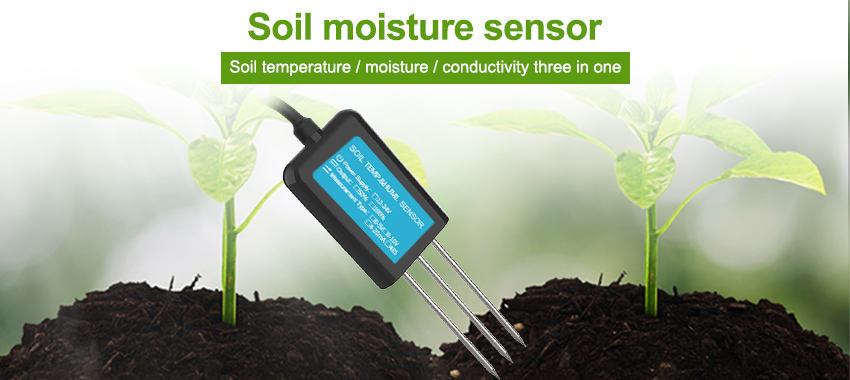Quality Soil Moisture Sensor
One of the key components in achieving precision irrigation is the utilization of high-quality soil moisture sensors. Precision irrigation is a crucial practice in modern agriculture that maximizes water efficiency and optimizes crop yield. These sensors provide real-time information about soil moisture levels, allowing farmers to make informed decisions regarding irrigation timing and quantity.

In this article, we will explore the importance of using high-quality soil moisture sensors in enhancing precision irrigation. We will discuss their role in water management, benefits for plant health and yield, as well as factors to consider when choosing the right sensor for your specific needs.
oil moisture sensors and their functionality.
Different types of soil moisture sensors: volumetric, tensiometric, and capacitance sensors.
How soil moisture is measured and interpreted by these sensors.
Importance of High-Quality Soil Moisture Sensors:
Accurate measurement of soil moisture content for precise irrigation.
Avoiding overwatering or underwatering, leading to improved water efficiency.
Minimizing nutrient leaching and preventing root diseases.
Reducing energy costs associated with excessive irrigation.
Benefits for Plant Health and Yield:

Promoting optimal plant growth and development through appropriate moisture levels.
Preventing water stress and minimizing yield losses.
Enhancing nutrient uptake and nutrient use efficiency.
Improving crop uniformity and reducing variability within fields.
Factors to Consider When Choosing Soil Moisture Sensors:
Sensor accuracy, reliability, and durability.
Compatibility with different soil types and environmental conditions.
Integration with irrigation systems or data loggers for real-time monitoring.
Cost-effectiveness and long-term maintenance requirements.
Installation and Calibration:
Proper sensor placement in the root zone of plants.
Calibrating sensors for specific soil types and crop requirements.
Regular maintenance and sensor validation to ensure accurate readings.
Conclusion:
High-quality soil moisture sensors are indispensable tools for precision irrigation. By providing real-time data on soil moisture content, these sensors enable farmers to make informed decisions, optimize water usage, and improve crop health and yield. When choosing soil moisture sensors, it is essential to consider factors such as accuracy, compatibility, and long-term maintenance requirements. With proper installation, calibration, and regular maintenance, high-quality soil moisture sensors can significantly enhance precision irrigation and contribute to sustainable agriculture practices.